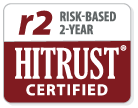The next in our Profiles in Healthcare series features our Director of Ambulatory CDI, Elizabeth Morgenroth, RHIA, CPC.
As the ACDIS 2021 virtual show kicks off this week, we sat down with Beth to talk about the long-term effects of COVID-19 on the CDI profession and how the role is changing.
Q: Are there any lessons from COVID-19 related to CDI that providers/payers must consider moving forward?
A: Expect the unexpected. I think the lessons we will learn from a documentation perspective have yet to be fully realized. So far, we have seen acute effects such as the respiratory, gastrointestinal, and sensory issues of the virus that can cause brain fog, potential lung damage, emboli and cardiac issues. We may continue to see more of these as time goes by, and we will be continuously watching for documentation that communicates a cause-and-effect relationship between the virus and these subsequent health issues as well as the long-term impact of the disease.
Despite enormous effort to ensure access to safe care through telehealth, patients who may have presented with symptoms of a chronic condition earlier in a disease process such as cancer or diabetes are now receiving care at a later and more advanced stage, which is unfortunate. I think this sends a message that we need to find a better way to improve patient access to care.
Q: Are there specific things that senior healthcare leaders do not understand about how clinical documentation must change in order to align with value-based care initiatives?
A: Two things come to mind:
- Technology alone is not the fix to all issues in healthcare.
- Physicians and non-physician practitioners such as physician assistants and nurse practitioners did not complete their advanced degrees and training to become data stewards or coders.
Technology provides us with an electronic resource to help us do the work that we do every day. In my conversations with physicians, even the most reticent agree that documentation is now legible following adoption of electronic health records.
This does not mean that the documentation contained in the medical record makes sense. For example, a provider who does not proof documentation produced from a speech-to-text software product. The software might not recognize the difference between two words “dysphagia” (difficulty swallowing), and dysphasia (difficulty speaking).
I have often said that if we allow technology to do all the thinking for us, then how do we know when it is not properly working? In some cases, technology is expected to help us “do more with less,” such as produce more with fewer staff. I am not sure that physicians would agree that technology has enabled them to be more productive.
Clinical documentation specialists (CDS), often with a specialized credential as well, assist physicians in documenting with clarity, consistency, and completeness. Providers do not have to search for the code, which correctly describes the constellation of conditions he or she managed, nor do they have to determine the correct order in which to place them or know all the rules associated with them.
Providers in the ambulatory clinic setting are often expected to correctly enter charges and diagnoses into a practice management system when all they really wanted to do was to care for patients. I would rather partner with a provider to ensure great documentation that supports great patient care and not have him or her be concerned about how to code the documentation, especially when I am the patient.
Q: How is the role of the CDI expert changing based on the transition to value over volume?
A: I see the CDI role changing in a different way. It originated in the hospital setting where the diagnosis primarily drives the reimbursement by communicating the intensity and complexity of resources needed to care for a patient.
This is how HCC coding works as well, by communicating the intensity and complexity of care needed to prevent a higher level of care (thus controlling cost) whenever possible. So, it is more of a move from facility to the clinic setting and resources, where clinical concepts blend with coding concepts to communicate both the needs and outcomes of a generalized population.
I am particularly excited about the recent changes to the fee-for-service world as even these services in the office setting emphasize documenting the physical (records reviewed, tests ordered, sources consulted) and the cognitive (decision making, differentials, thought process) of the provider of care. Clinical Documentation Specialists can partner with providers in many of the same concepts as value-based care, as our documentation requirements shift toward communicating complexity of patient care management, and not in simply checking off boxes that do not contribute to the needs and care of the patient.
In other words, providers who have already adopted strategies that embrace value over volume are ahead of the curve in terms of documentation, and I am excited to help them achieve that as we share a common primary focus, and that’s great patient care.

